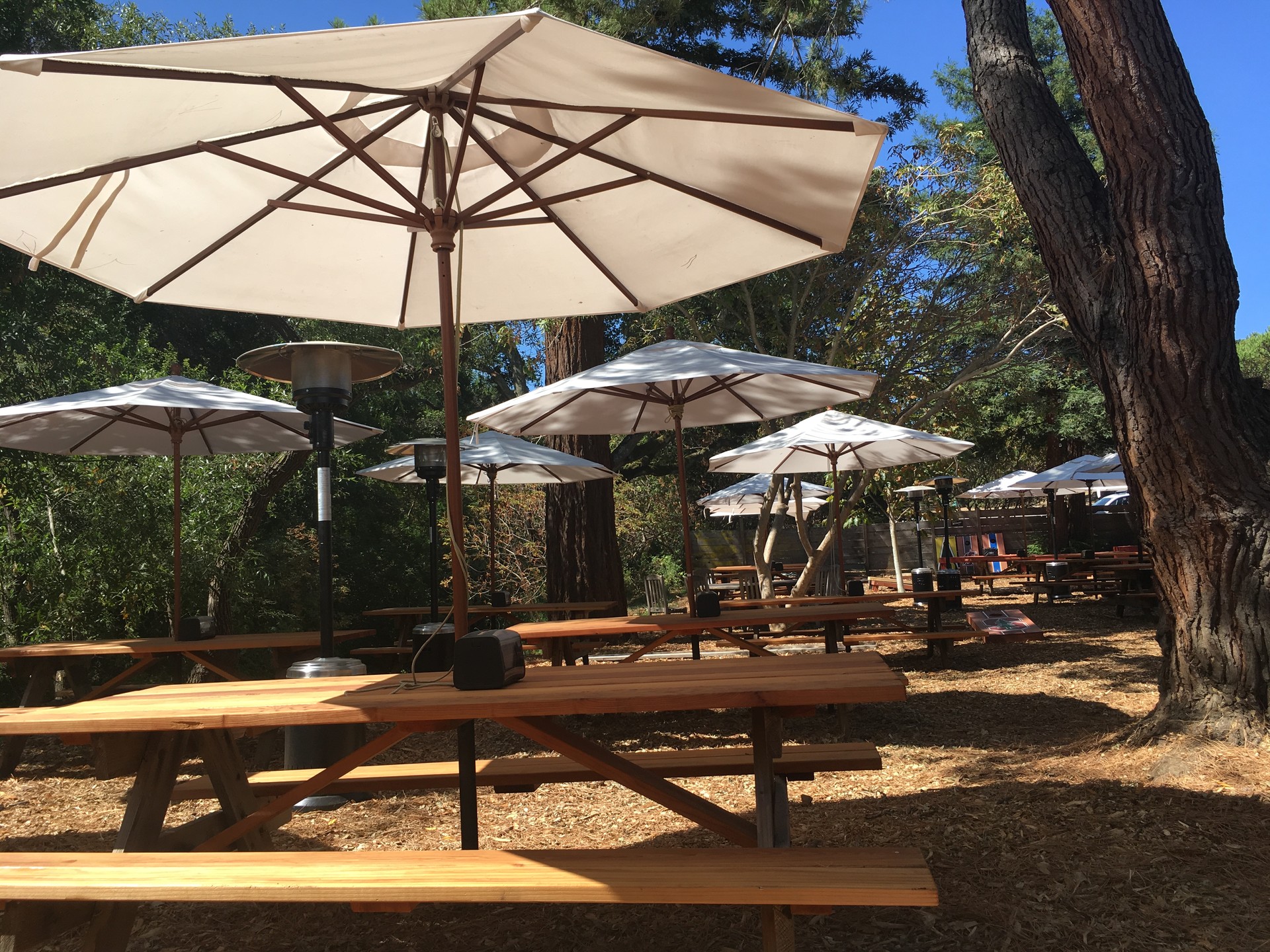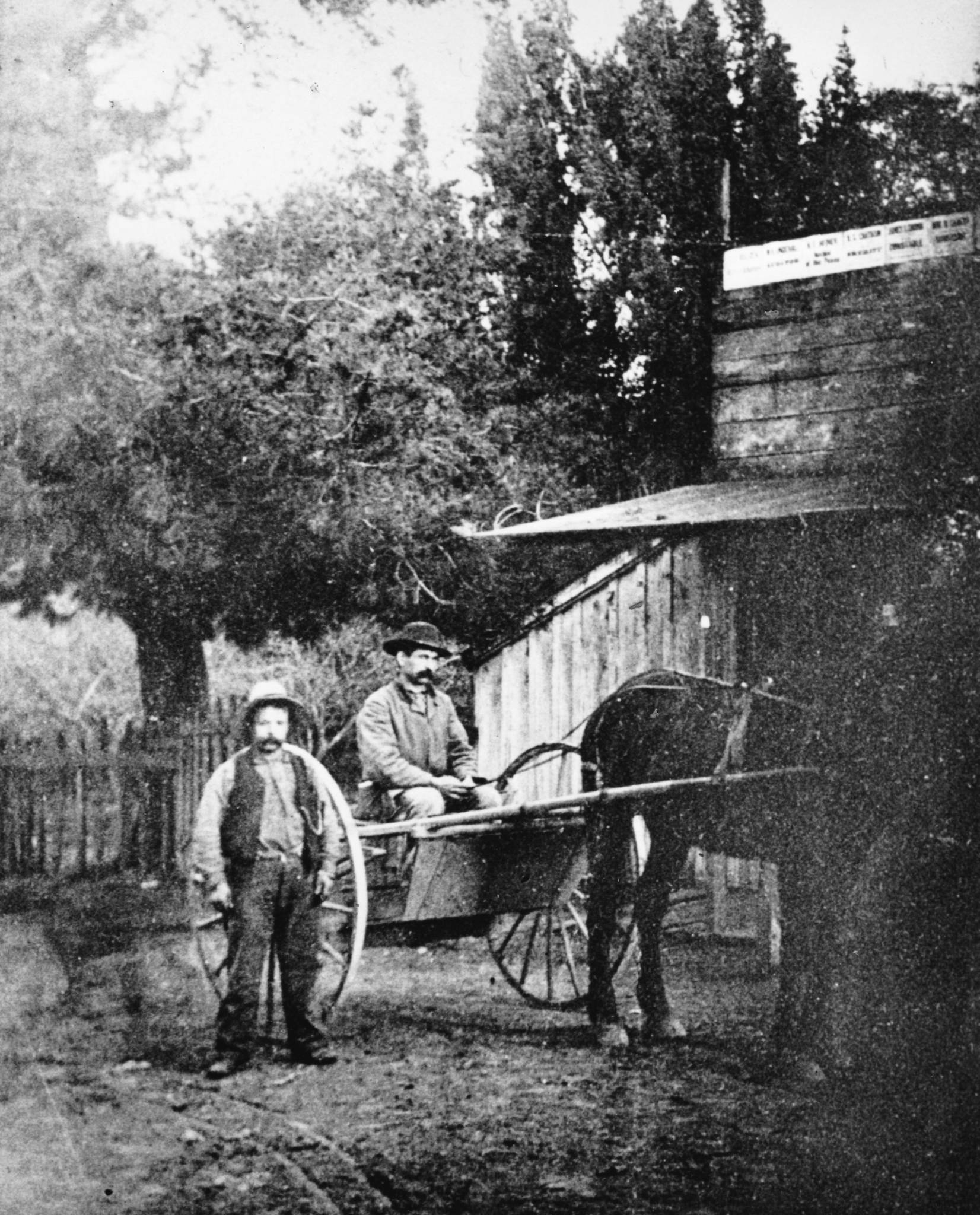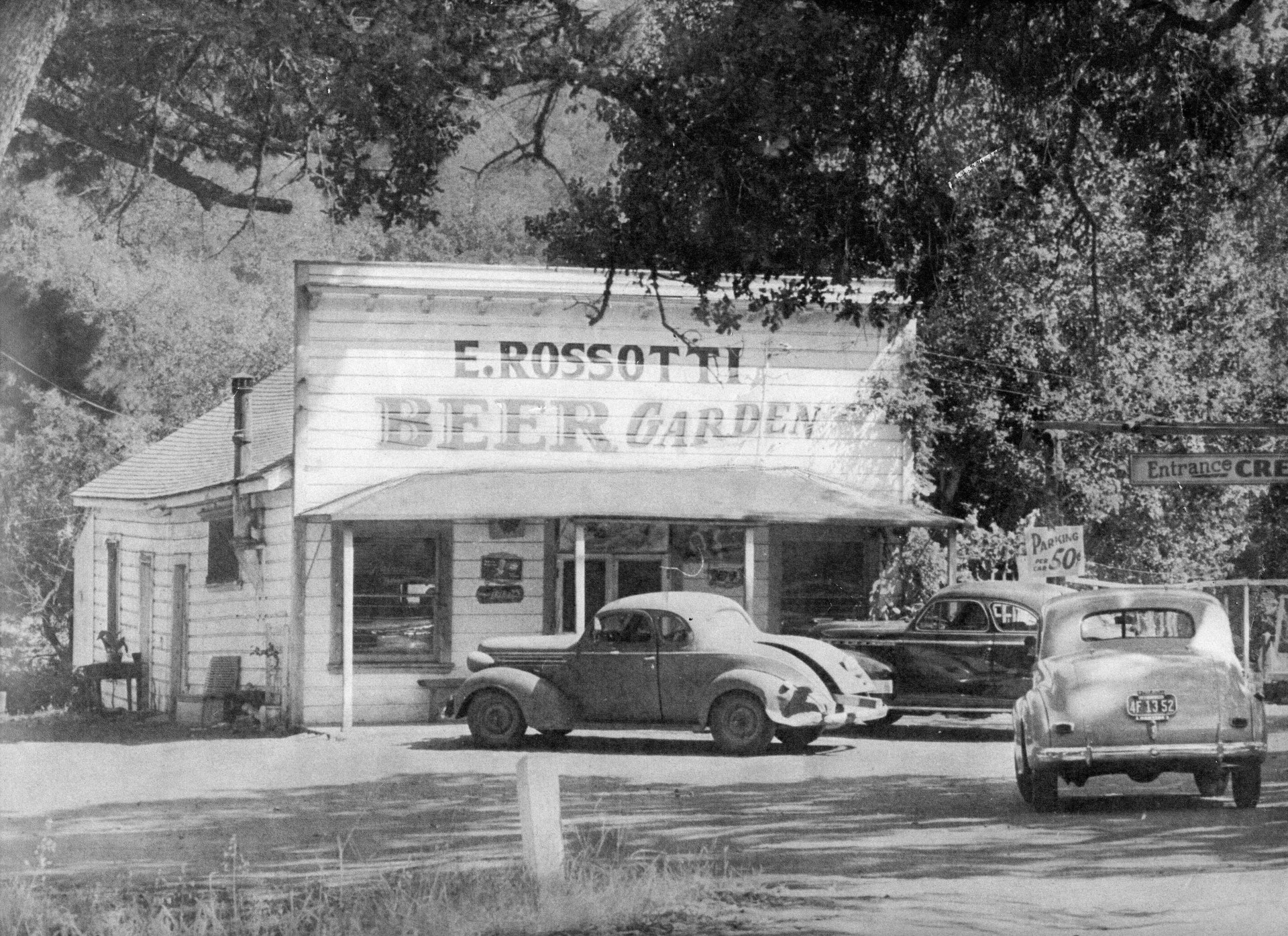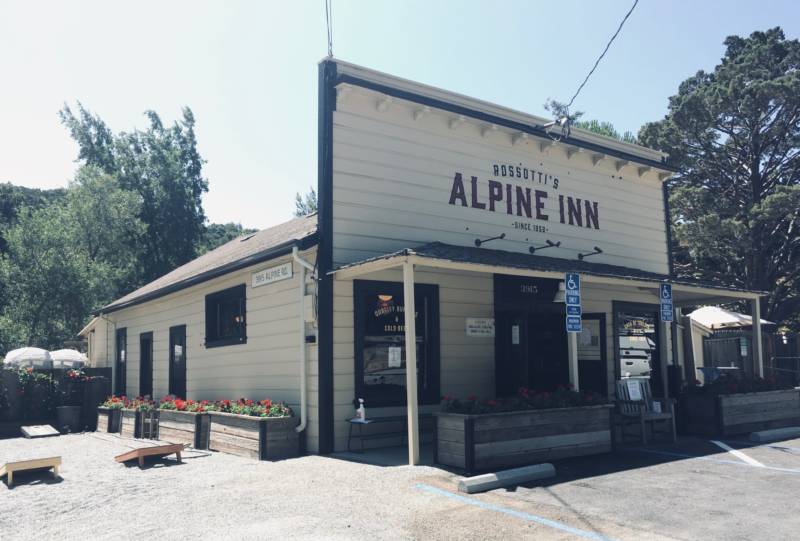One of the oldest continually operating roadhouses in California reopened Friday under new management. Rossotti’s Alpine Inn, or “Zot’s,” as it’s called today, faces the 21st century with a fresh coat of paint, new guts and an open view of Los Trancos Creek in the back garden.
Lori Hunter, leading the latest group of investors to own this joint, has lived in the neighborhood for 26 years. There’s no denying Portola Valley is today one of the wealthiest zip codes in the United States, but locals have historically patronized the Alpine Inn because of its appealing modesty.
Hunter insists she has no intention of ruining this establishment’s fine reputation by appealing to hipsters. She says she wants Alpine Inn to continue to be what it has been for her. “Just a casual place that you can sit around and talk as long as you want, and not be dressed up!”
That said, the new owners did have to bring the kitchen and other things up to code. “We ended up having to redo all the appliances, everything about where the food’s prepared and where the beer lives. What you do see is very similar. What you don’t see is very different.”
Helping her with the retrofit is Greg St. Claire, who runs the San Carlos-based Avenir Restaurant Group, which owns three Peninsula restaurants: Town in San Carlos, Milagros in Redwood City, and Nola in Palo Alto.

St. Claire grew up in Portola Valley. “I’ve done a lot of restaurants before, but there is definitely something magical about this place. It’s generations and generations of people who’ve been coming here,” he said.
Hunter added, “My dad came here. Greg’s dad came here. We have people who brought pictures from their dad’s dad in 1917 that are up on the wall now. It just feels really good to keep it going.”
So they kept the drunken wood carvings and photos from previous owners, as well as photos from neighborhood regulars who’ve been stopping in during the remodel to make sure it doesn’t mess with the spirit of the place.
A little history with your beer and burger
Casa De Tableta, as it was first known, has drawn people looking for cheap booze and warm conversation since 1852, when Mexican Californios flocked here.
“As far as we know, it started with a gift or a wager,” says Portola Valley historian Nancy Lund. “Somehow (former San Jose Mayor) Felix Buelna got the land, and built the roadhouse, and kept it for awhile.” Buelna picked a good spot, at the intersection of the old Arrastradero leading to Mission Santa Clara and the Old Spanish Trail (Alpine Road).

As the years passed, this spot proved advantageous in ways Buelna could never have foreseen. Stanford opened in 1891, and with it, efforts by the administration to shut down purveyors of alcohol in the near vicinity.
Mayfield’s 23 saloons closed in 1905, and in 1909, a new law barred liquor sales within one and a half miles of the campus, closing 14 more saloons in Menlo Park. The Wunder, as the roadhouse was called by then, sat outside the law’s jurisdiction, much to the dismay of David Starr Jordan, the university’s first president, who described The Wunder as “unusually vile, even for a roadhouse … and a disgrace to San Mateo County.”
Naturally, the young students at Stanford loved the joint. Later, the young soldiers did, too, especially given a five mile dry zone imposed around Menlo Park’s Camp Fremont during World War I.
As local real estate agent Virginia Bacon Wrote for Portola Valley, Past and Present, stories of the bar’s role in bootleg operations during Prohibition “are as varied as they are impossible to confirm.” However, today’s owners can confirm there was a basement under the tavern, accessed by a hatch, where period “product” was stored.
There were also apparently rooms for rent by the hour at some point in the past. “Somebody told us that was the story,” Hunter said.

Over 167 years, there have been many names for the little building: Casa De Tableta, Fernando’s, Philpot’s, Stanton’s Saloon, Black Chapete’s, The Wunder, and Schenkel’s Picnic Park.
Enter Enrico Rossotti, who took over the lease and then purchased the property in 1940. Although he only owned his beer garden for eight years, the old place is still known by his name, or “Zot’s.” The owners who took it over from Rossotti in 1959 gave the place its current name, Alpine Inn.
So it was the rude little building that became a local institution, a California Registered Landmark also on the National Register of Historic Places. Once a watering hole for thirsty horsemen passing through, the roadhouse has survived by welcoming changing demographics over multiple generations.
“Well, it’s everybody now,” said Lund. “Motorcyclists, kids, equestrians, soccer teams after games, everyone.”

